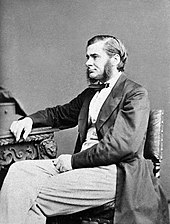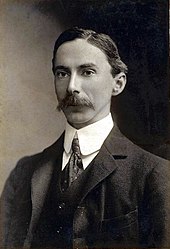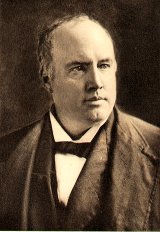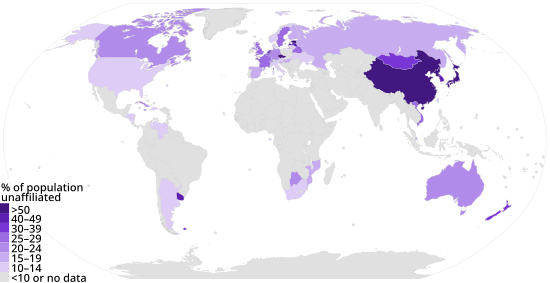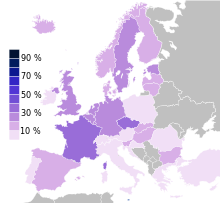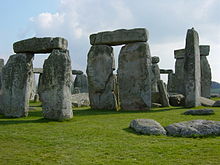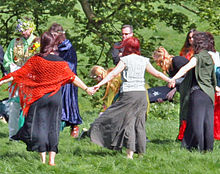Agnosticism is the view that the existence of God, of the divine or the supernatural is unknown or unknowable.
Another definition provided is the view that "human reason is incapable
of providing sufficient rational grounds to justify either the belief
that God exists or the belief that God does not exist."
The English biologist Thomas Henry Huxley coined the word agnostic in 1869, and said "It simply means that a man shall not say he knows or believes that which he has no scientific grounds for professing to know or believe." Earlier thinkers, however, had written works that promoted agnostic points of view, such as Sanjaya Belatthaputta, a 5th-century BCE Indian philosopher who expressed agnosticism about any afterlife; and Protagoras, a 5th-century BCE Greek philosopher who expressed agnosticism about the existence of "the gods".
Agnosticism is the doctrine or tenet of agnostics with regard to the existence of anything beyond and behind material phenomena or to knowledge of a First Cause or God, and is not a religion.
The English biologist Thomas Henry Huxley coined the word agnostic in 1869, and said "It simply means that a man shall not say he knows or believes that which he has no scientific grounds for professing to know or believe." Earlier thinkers, however, had written works that promoted agnostic points of view, such as Sanjaya Belatthaputta, a 5th-century BCE Indian philosopher who expressed agnosticism about any afterlife; and Protagoras, a 5th-century BCE Greek philosopher who expressed agnosticism about the existence of "the gods".
Agnosticism is the doctrine or tenet of agnostics with regard to the existence of anything beyond and behind material phenomena or to knowledge of a First Cause or God, and is not a religion.
Defining agnosticism
Agnosticism is of the essence of science, whether ancient or modern. It simply means that a man shall not say he knows or believes that which he has no scientific grounds for professing to know or believe. Consequently, agnosticism puts aside not only the greater part of popular theology, but also the greater part of anti-theology. On the whole, the "bosh" of heterodoxy is more offensive to me than that of orthodoxy, because heterodoxy professes to be guided by reason and science, and orthodoxy does not.
— Thomas Henry Huxley
That which Agnostics deny and repudiate, as immoral, is the contrary doctrine, that there are propositions which men ought to believe, without logically satisfactory evidence; and that reprobation ought to attach to the profession of disbelief in such inadequately supported propositions.
— Thomas Henry Huxley
Agnosticism, in fact, is not a creed, but a method, the essence of which lies in the rigorous application of a single principle ... Positively the principle may be expressed: In matters of the intellect, follow your reason as far as it will take you, without regard to any other consideration. And negatively: In matters of the intellect do not pretend that conclusions are certain which are not demonstrated or demonstrable.
— Thomas Henry Huxley
Being a scientist, above all else, Huxley
presented agnosticism as a form of demarcation. A hypothesis with no
supporting, objective, testable evidence is not an objective, scientific
claim. As such, there would be no way to test said hypotheses, leaving
the results inconclusive. His agnosticism was not compatible with
forming a belief as to the truth, or falsehood, of the claim at hand. Karl Popper would also describe himself as an agnostic. According to philosopher William L. Rowe,
in this strict sense, agnosticism is the view that human reason is
incapable of providing sufficient rational grounds to justify either the
belief that God exists or the belief that God does not exist.
George H. Smith, while admitting that the narrow definition of atheist was the common usage definition of that word, and admitting that the broad definition of agnostic was the common usage definition of that word,
promoted broadening the definition of atheist and narrowing the
definition of agnostic. Smith rejects agnosticism as a third alternative
to theism and atheism and promotes terms such as agnostic atheism (the view of those who do not believe in the existence of any deity, but do not claim to know if a deity does or does not exist) and agnostic theism (the view of those who do not claim to know of the existence of any deity, but still believe in such an existence).
Etymology
Agnostic (from Ancient Greek ἀ- (a-), meaning 'without', and γνῶσις (gnōsis), meaning 'knowledge') was used by Thomas Henry Huxley in a speech at a meeting of the Metaphysical Society in 1869 to describe his philosophy, which rejects all claims of spiritual or mystical knowledge.
Early Christian church leaders used the Greek word gnosis
(knowledge) to describe "spiritual knowledge". Agnosticism is not to be
confused with religious views opposing the ancient religious movement
of Gnosticism in particular; Huxley used the term in a broader, more abstract sense.
Huxley identified agnosticism not as a creed but rather as a method of skeptical, evidence-based inquiry.
In recent years, scientific literature dealing with neuroscience and psychology has used the word to mean "not knowable".
In technical and marketing literature, "agnostic" can also mean
independence from some parameters—for example, "platform agnostic"
(referring to cross-platform software)
or "hardware-agnostic".
Qualifying agnosticism
Scottish Enlightenment philosopher David Hume
contended that meaningful statements about the universe are always
qualified by some degree of doubt. He asserted that the fallibility of
human beings means that they cannot obtain absolute certainty except in
trivial cases where a statement is true by definition (e.g. tautologies such as "all bachelors are unmarried" or "all triangles have three corners").
Types
- Strong agnosticism (also called "hard", "closed", "strict", or "permanent agnosticism")
- The view that the question of the existence or nonexistence of a deity or deities, and the nature of ultimate reality is unknowable by reason of our natural inability to verify any experience with anything but another subjective experience. A strong agnostic would say, "I cannot know whether a deity exists or not, and neither can you."
- Weak agnosticism (also called "soft", "open", "empirical", or "temporal agnosticism")
- The view that the existence or nonexistence of any deities is currently unknown but is not necessarily unknowable; therefore, one will withhold judgment until evidence, if any, becomes available. A weak agnostic would say, "I don't know whether any deities exist or not, but maybe one day, if there is evidence, we can find something out."
- Apathetic agnosticism
- The view that no amount of debate can prove or disprove the existence of one or more deities, and if one or more deities exist, they do not appear to be concerned about the fate of humans. Therefore, their existence has little to no impact on personal human affairs and should be of little interest. An apathetic agnostic would say, "I don't know whether any deity exist or not, and I don't care if any deity exists or not."
History
Hindu philosophy
Throughout the history of Hinduism there has been a strong tradition of philosophic speculation and skepticism.
The Rig Veda takes an agnostic view on the fundamental question of how the universe and the gods were created. Nasadiya Sukta (Creation Hymn) in the tenth chapter of the Rig Veda says:
But, after all, who knows, and who can say
Whence it all came, and how creation happened?
The gods themselves are later than creation,
so who knows truly whence it has arisen?
Whence all creation had its origin,
He, whether he fashioned it or whether he did not,
He, who surveys it all from highest heaven,
He knows - or maybe even he does not know.
Hume, Kant, and Kierkegaard
Aristotle,
Anselm,
Aquinas,
Descartes,
and Gödel
presented arguments attempting to rationally prove the existence of God. The skeptical empiricism of David Hume, the antinomies of Immanuel Kant, and the existential philosophy of Søren Kierkegaard
convinced many later philosophers to abandon these attempts, regarding
it impossible to construct any unassailable proof for the existence or
non-existence of God.
In his 1844 book, Philosophical Fragments, Kierkegaard writes:
Let us call this unknown something: God. It is nothing more than a name we assign to it. The idea of demonstrating that this unknown something (God) exists, could scarcely suggest itself to Reason. For if God does not exist it would of course be impossible to prove it; and if he does exist it would be folly to attempt it. For at the very outset, in beginning my proof, I would have presupposed it, not as doubtful but as certain (a presupposition is never doubtful, for the very reason that it is a presupposition), since otherwise I would not begin, readily understanding that the whole would be impossible if he did not exist. But if when I speak of proving God's existence I mean that I propose to prove that the Unknown, which exists, is God, then I express myself unfortunately. For in that case I do not prove anything, least of all an existence, but merely develop the content of a conception.
Hume was Huxley's favourite philosopher, calling him "the Prince of Agnostics". Diderot wrote to his mistress, telling of a visit by Hume to the Baron D'Holbach,
and describing how a word for the position that Huxley would later
describe as agnosticism didn't seem to exist, or at least wasn't common
knowledge, at the time.
The first time that M. Hume found himself at the table of the Baron, he was seated beside him. I don't know for what purpose the English philosopher took it into his head to remark to the Baron that he did not believe in atheists, that he had never seen any. The Baron said to him: "Count how many we are here." We are eighteen. The Baron added: "It isn't too bad a showing to be able to point out to you fifteen at once: the three others haven't made up their minds."
— Denis Diderot
United Kingdom
Charles Darwin
Raised in a religious environment, Charles Darwin
(1809-1882) studied to be an Anglican clergyman. While eventually
doubting parts of his faith, Darwin continued to help in church affairs,
even while avoiding church attendance. Darwin stated that it would be
"absurd to doubt that a man might be an ardent theist and an
evolutionist".
Although reticent about his religious views, in 1879 he wrote that "I
have never been an atheist in the sense of denying the existence of a
God. – I think that generally ... an agnostic would be the most correct
description of my state of mind."
Thomas Henry Huxley
Agnostic views are as old as philosophical skepticism, but the terms agnostic and agnosticism were created by Huxley (1825-1895) to sum up his thoughts on contemporary developments of metaphysics about the "unconditioned" (William Hamilton) and the "unknowable" (Herbert Spencer).
Though Huxley began to use the term "agnostic" in 1869, his opinions
had taken shape some time before that date. In a letter of September 23,
1860, to Charles Kingsley, Huxley discussed his views extensively:
I neither affirm nor deny the immortality of man. I see no reason for believing it, but, on the other hand, I have no means of disproving it. I have no a priori objections to the doctrine. No man who has to deal daily and hourly with nature can trouble himself about a priori difficulties. Give me such evidence as would justify me in believing in anything else, and I will believe that. Why should I not? It is not half so wonderful as the conservation of force or the indestructibility of matter ...
It is no use to talk to me of analogies and probabilities. I know what I mean when I say I believe in the law of the inverse squares, and I will not rest my life and my hopes upon weaker convictions ...
That my personality is the surest thing I know may be true. But the attempt to conceive what it is leads me into mere verbal subtleties. I have champed up all that chaff about the ego and the non-ego, noumena and phenomena, and all the rest of it, too often not to know that in attempting even to think of these questions, the human intellect flounders at once out of its depth.
And again, to the same correspondent, May 6, 1863:
I have never had the least sympathy with the a priori reasons against orthodoxy, and I have by nature and disposition the greatest possible antipathy to all the atheistic and infidel school. Nevertheless I know that I am, in spite of myself, exactly what the Christian would call, and, so far as I can see, is justified in calling, atheist and infidel. I cannot see one shadow or tittle of evidence that the great unknown underlying the phenomenon of the universe stands to us in the relation of a Father [who] loves us and cares for us as Christianity asserts. So with regard to the other great Christian dogmas, immortality of soul and future state of rewards and punishments, what possible objection can I—who am compelled perforce to believe in the immortality of what we call Matter and Force, and in a very unmistakable present state of rewards and punishments for our deeds—have to these doctrines? Give me a scintilla of evidence, and I am ready to jump at them.
Of the origin of the name agnostic to describe this attitude, Huxley gave the following account:
When I reached intellectual maturity and began to ask myself whether I was an atheist, a theist, or a pantheist; a materialist or an idealist; Christian or a freethinker; I found that the more I learned and reflected, the less ready was the answer; until, at last, I came to the conclusion that I had neither art nor part with any of these denominations, except the last. The one thing in which most of these good people were agreed was the one thing in which I differed from them. They were quite sure they had attained a certain "gnosis"–had, more or less successfully, solved the problem of existence; while I was quite sure I had not, and had a pretty strong conviction that the problem was insoluble. And, with Hume and Kant on my side, I could not think myself presumptuous in holding fast by that opinion ... So I took thought, and invented what I conceived to be the appropriate title of "agnostic". It came into my head as suggestively antithetic to the "gnostic" of Church history, who professed to know so much about the very things of which I was ignorant. ... To my great satisfaction the term took.
In 1889, Huxley wrote:
Therefore, although it be, as I believe, demonstrable that we have no real knowledge of the authorship, or of the date of composition of the Gospels, as they have come down to us, and that nothing better than more or less probable guesses can be arrived at on that subject.
William Stewart Ross
William Stewart Ross
(1844-1906) wrote under the name of Saladin. He was associated with
Victorian Freethinkers and the organization the British Secular Union.
He edited the Secular Review from 1882; it was renamed Agnostic Journal and Eclectic Review and closed in 1907. Ross championed agnosticism in opposition to the atheism of Charles Bradlaugh as an open-ended spiritual exploration.
In Why I am an Agnostic (c. 1889) he claims that agnosticism is "the very reverse of atheism".
Bertrand Russell
Bertrand Russell (1872-1970) declared Why I Am Not a Christian in 1927, a classic statement of agnosticism.
He calls upon his readers to "stand on their own two feet and look fair
and square at the world with a fearless attitude and a free
intelligence".
In 1939, Russell gave a lecture on The existence and nature of God, in which he characterized himself as an atheist. He said:
The existence and nature of God is a subject of which I can discuss only half. If one arrives at a negative conclusion concerning the first part of the question, the second part of the question does not arise; and my position, as you may have gathered, is a negative one on this matter.
However, later in the same lecture, discussing modern non-anthropomorphic concepts of God, Russell states:
That sort of God is, I think, not one that can actually be disproved, as I think the omnipotent and benevolent creator can.
In Russell's 1947 pamphlet, Am I An Atheist or an Agnostic? (subtitled A Plea For Tolerance in the Face of New Dogmas), he ruminates on the problem of what to call himself:
As a philosopher, if I were speaking to a purely philosophic audience I should say that I ought to describe myself as an Agnostic, because I do not think that there is a conclusive argument by which one can prove that there is not a God. On the other hand, if I am to convey the right impression to the ordinary man in the street I think I ought to say that I am an Atheist, because when I say that I cannot prove that there is not a God, I ought to add equally that I cannot prove that there are not the Homeric gods.
In his 1953 essay, What Is An Agnostic? Russell states:
An agnostic thinks it impossible to know the truth in matters such as God and the future life with which Christianity and other religions are concerned. Or, if not impossible, at least impossible at the present time.
Are Agnostics Atheists?
No. An atheist, like a Christian, holds that we can know whether or not there is a God. The Christian holds that we can know there is a God; the atheist, that we can know there is not. The Agnostic suspends judgment, saying that there are not sufficient grounds either for affirmation or for denial.
Later in the essay, Russell adds:
I think that if I heard a voice from the sky predicting all that was going to happen to me during the next twenty-four hours, including events that would have seemed highly improbable, and if all these events then produced to happen, I might perhaps be convinced at least of the existence of some superhuman intelligence.
Leslie Weatherhead
In 1965 Christian theologian Leslie Weatherhead (1893–1976) published The Christian Agnostic, in which he argues:
... many professing agnostics are nearer belief in the true God than are many conventional church-goers who believe in a body that does not exist whom they miscall God.
Although radical and unpalatable to conventional theologians, Weatherhead's agnosticism falls far short of Huxley's, and short even of weak agnosticism:
Of course, the human soul will always have the power to reject God, for choice is essential to its nature, but I cannot believe that anyone will finally do this.
United States
Robert G. Ingersoll
Robert G. Ingersoll (1833-1899), an Illinois
lawyer and politician who evolved into a well-known and sought-after
orator in 19th-century America, has been referred to as the "Great
Agnostic".
In an 1896 lecture titled Why I Am An Agnostic, Ingersoll related why he was an agnostic:
Is there a supernatural power—an arbitrary mind—an enthroned God—a supreme will that sways the tides and currents of the world—to which all causes bow? I do not deny. I do not know—but I do not believe. I believe that the natural is supreme—that from the infinite chain no link can be lost or broken—that there is no supernatural power that can answer prayer—no power that worship can persuade or change—no power that cares for man.
I believe that with infinite arms Nature embraces the all—that there is no interference—no chance—that behind every event are the necessary and countless causes, and that beyond every event will be and must be the necessary and countless effects.
Is there a God? I do not know. Is man immortal? I do not know. One thing I do know, and that is, that neither hope, nor fear, belief, nor denial, can change the fact. It is as it is, and it will be as it must be.
In the conclusion of the speech he simply sums up the agnostic position as:
We can be as honest as we are ignorant. If we are, when asked what is beyond the horizon of the known, we must say that we do not know.
In 1885 Ingersoll explained his comparative view of agnosticism and atheism as follows:
The Agnostic is an Atheist. The Atheist is an Agnostic. The Agnostic says, ‘I do not know, but I do not believe there is any God.’ The Atheist says the same.
Bernard Iddings Bell
Canon Bernard Iddings Bell (1886-1958), a popular cultural commentator, Episcopal priest, and author, lauded the necessity of agnosticism in Beyond Agnosticism: A Book for Tired Mechanists, calling it the foundation of "all intelligent Christianity."
Agnosticism was a temporary mindset in which one rigorously questioned
the truths of the age, including the way in which one believed God. His view of Robert Ingersoll and Thomas Paine was that they were not denouncing true Christianity but rather "a gross perversion of it." Part of the misunderstanding stemmed from ignorance of the concepts of God and religion.
Historically, a god was any real, perceivable force that ruled the
lives of humans and inspired admiration, love, fear, and homage;
religion was the practice of it. Ancient peoples worshiped gods with
real counterparts, such as Mammon (money and material things), Nabu (rationality), or Ba'al
(violent weather); Bell argued that modern peoples were still paying
homage—with their lives and their children's lives—to these old gods of
wealth, physical appetites, and self-deification. Thus, if one attempted to be agnostic passively, he or she would incidentally join the worship of the world's gods.
In Unfashionable Convictions (1931), he criticized the Enlightenment's complete faith in human sensory perception,
augmented by scientific instruments, as a means of accurately grasping
Reality. Firstly, it was fairly new, an innovation of the Western World,
which Aristotle invented and Thomas Aquinas
revived among the scientific community. Secondly, the divorce of "pure"
science from human experience, as manifested in American Industrialization,
had completely altered the environment, often disfiguring it, so as to
suggest its insufficiency to human needs. Thirdly, because scientists
were constantly producing more data—to the point where no single human
could grasp it all at once—it followed that human intelligence was
incapable of attaining a complete understanding of universe; therefore,
to admit the mysteries of the unobserved universe was to be actually scientific.
Bell believed that there were two other ways that humans could perceive and interact with the world. Artistic experience
was how one expressed meaning through speaking, writing, painting,
gesturing—any sort of communication which shared insight into a human's
inner reality. Mystical experience was how one could "read" people and harmonize with them, being what we commonly call love. In summary, man was a scientist, artist, and lover. Without exercising all three, a person became "lopsided."
Bell considered a humanist
to be a person who cannot rightly ignore the other ways of knowing.
However, humanism, like agnosticism, was also temporal, and would
eventually lead to either scientific materialism or theism. He lays out the following thesis:
- Truth cannot be discovered by reasoning on the evidence of scientific data alone. Modern peoples' dissatisfaction with life is the result of depending on such incomplete data. Our ability to reason is not a way to discover Truth but rather a way to organize our knowledge and experiences somewhat sensibly. Without a full, human perception of the world, one's reason tends to lead them in the wrong direction.
- Beyond what can be measured with scientific tools, there are other types of perception, such as one's ability know another human through loving. One's loves cannot be dissected and logged in a scientific journal, but we know them far better than we know the surface of the sun. They show us an undefinable reality that is nevertheless intimate and personal, and they reveal qualities lovelier and truer than detached facts can provide.
- To be religious, in the Christian sense, is to live for the Whole of Reality (God) rather than for a small part (gods). Only by treating this Whole of Reality as a person—good and true and perfect—rather than an impersonal force, can we come closer to the Truth. An ultimate Person can be loved, but a cosmic force cannot. A scientist can only discover peripheral truths, but a lover is able to get at the Truth.
- There are many reasons to believe in God but they are not sufficient for an agnostic to become a theist. It is not enough to believe in an ancient holy book, even though when it is accurately analyzed without bias, it proves to be more trustworthy and admirable than what we are taught in school. Neither is it enough to realize how probable it is that a personal God would have to show human beings how to live, considering they have so much trouble on their own. Nor is it enough to believe for the reason that, throughout history, millions of people have arrived at this Wholeness of Reality only through religious experience. The aforementioned reasons may warm one toward religion, but they fall short of convincing. However, if one presupposes that God is in fact a knowable, loving person, as an experiment, and then lives according that religion, he or she will suddenly come face to face with experiences previously unknown. One's life becomes full, meaningful, and fearless in the face of death. It does not defy reason but exceeds it.
- Because God has been experienced through love, the orders of prayer, fellowship, and devotion now matter. They create order within one's life, continually renewing the "missing piece" that had previously felt lost. They empower one to be compassionate and humble, not small-minded or arrogant.
- No truth should be denied outright, but all should be questioned. Science reveals an ever-growing vision of our universe that should not be discounted due to bias toward older understandings. Reason is to be trusted and cultivated. To believe in God is not to forego reason or to deny scientific facts, but to step into the unknown and discover the fullness of life.
Demographics
Percentage
of people in various European countries who said: "I don't believe
there is any sort of spirit, God or life force." (2005)
Demographic
research services normally do not differentiate between various types
of non-religious respondents, so agnostics are often classified in the
same category as atheists or other non-religious people.
A 2010 survey published in Encyclopædia Britannica found that the non-religious people or the agnostics made up about 9.6% of the world's population.
A November–December 2006 poll published in the Financial Times
gives rates for the United States and five European countries. The
rates of agnosticism in the United States were at 14%, while the rates
of agnosticism in the European countries surveyed were considerably
higher: Italy (20%), Spain (30%), Great Britain (35%), Germany (25%),
and France (32%).
A study conducted by the Pew Research Center found that about 16% of the world's people, the third largest group after Christianity and Islam, have no religious affiliation.
According to a 2012 report by the Pew Research Center, agnostics made up 3.3% of the US adult population.
In the U.S. Religious Landscape Survey, conducted by the Pew Research Center, 55% of agnostic respondents expressed "a belief in God or a universal spirit",
whereas 41% stated that they thought that they felt a tension "being
non-religious in a society where most people are religious".
According to the 2011 Australian Bureau of Statistics, 22% of Australians have "no religion", a category that includes agnostics.
Between 64% and 65%
of Japanese and up to 81%
of Vietnamese are atheists, agnostics, or do not believe in a god. An official European Union survey reported that 3% of the EU population is unsure about their belief in a god or spirit.
Criticism
Agnosticism
is criticized from a variety of standpoints. Some religious thinkers
see agnosticism as limiting the mind's capacity to know reality to materialism.
Some atheists criticize the use of the term agnosticism as functionally
indistinguishable from atheism; this results in frequent criticisms of
those who adopt the term as avoiding the atheist label.
Theistic
Theistic critics claim that agnosticism is impossible in practice, since a person can live only either as if God did not exist (etsi deus non-daretur), or as if God did exist (etsi deus daretur).
Christian
According to Pope Benedict XVI, strong agnosticism in particular contradicts itself in affirming the power of reason to know scientific truth.
He blames the exclusion of reasoning from religion and ethics for
dangerous pathologies such as crimes against humanity and ecological
disasters.
"Agnosticism", said Ratzinger, "is always the fruit of a refusal of that
knowledge which is in fact offered to man ... The knowledge of God has
always existed".
He asserted that agnosticism is a choice of comfort, pride, dominion,
and utility over truth, and is opposed by the following attitudes: the
keenest self-criticism, humble listening to the whole of existence, the
persistent patience and self-correction of the scientific method, a readiness to be purified by the truth.
The Catholic Church
sees merit in examining what it calls "partial agnosticism",
specifically those systems that "do not aim at constructing a complete
philosophy of the unknowable, but at excluding special kinds of truth,
notably religious, from the domain of knowledge". However, the Church is historically opposed to a full denial of the capacity of human reason to know God. The Council of the Vatican
declares, "God, the beginning and end of all, can, by the natural light
of human reason, be known with certainty from the works of creation".
Blaise Pascal argued that even if there were truly no evidence for God, agnostics should consider what is now known as Pascal's Wager: the infinite
expected value of acknowledging God is always greater than the finite
expected value of not acknowledging his existence, and thus it is a
safer "bet" to choose God.
Peter Kreeft and Ronald Tacelli cited 20 arguments for God's existence,
asserting that any demand for evidence testable in a laboratory is in
effect asking God, the supreme being, to become man's servant.
Atheistic
According to Richard Dawkins,
a distinction between agnosticism and atheism is unwieldy and depends
on how close to zero a person is willing to rate the probability of
existence for any given god-like entity. About himself, Dawkins
continues, "I am agnostic only to the extent that I am agnostic about
fairies at the bottom of the garden."
Dawkins also identifies two categories of agnostics; "Temporary
Agnostics in Practice" (TAPs), and "Permanent Agnostics in Principle"
(PAPs). He states that "agnosticism about the existence of God belongs
firmly in the temporary or TAP category. Either he exists or he doesn't.
It is a scientific question; one day we may know the answer, and
meanwhile we can say something pretty strong about the probability" and
considers PAP a "deeply inescapable kind of fence-sitting".
Ignosticism
A related concept is ignosticism,
the view that a coherent definition of a deity must be put forward
before the question of the existence of a deity can be meaningfully
discussed. If the chosen definition is not coherent, the ignostic holds
the noncognitivist view that the existence of a deity is meaningless or empirically untestable. A. J. Ayer, Theodore Drange,
and other philosophers see both atheism and agnosticism as incompatible
with ignosticism on the grounds that atheism and agnosticism accept "a
deity exists" as a meaningful proposition that can be argued for or
against.

